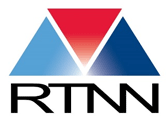Join us on February 21, 2023 (1 pm – 3 pm, Eastern Time) for a virtual community event aimed at identifying and building consensus on the key R&D needs and opportunities to help address climate change using nanotechnology.
The event is inspired and informed by the NSF Engineering Research Visioning Alliance (ERVA) report, “The Role of Engineering to Address Climate Change” (https://www.ervacommunity.org/visioning-report/visioning-event-report/) and the National Nanotechnology Initiative (NNI) Nano4EARTH Challenge (https://www.nano.gov/nano4EARTH). The virtual community event targeting the basic science, fundamental research, and convergence needs is being held a few weeks after the complementary commercialization-focused Nano4EARTH Kick-off Workshop in Washington, DC. The event is organized by the NSF-supported National Nanotechnology Coordinated Infrastructure (NNCI) Research Community for Nanotechnology Convergence.

Specifically, the initiative seeks to identify, prioritize, and disseminate the:
- Underpinning nanotechnology/nanoscience fundamental/basic science research areas that can best support solutions to climate change challenges in both short-term and long-term,
- Necessary characteristics of the research process, e.g. aspects of convergence including contributing disciplines, stakeholder engagement, and
- Capabilities and expertise in open-access nanotechnology research facilities to support current and future research needs.
Individuals who are working in academia, government institutions, non-governmental organizations, industry, etc. are encouraged to attend and this event is open to all disciplines in the physical, life, social, and economic sciences.
More meeting information, including a link to the virtual workshop platform will be provided to registrants closer to the event date.
Draft Agenda (Eastern Standard Time)
- 1:00 – 1:10 PM – Welcome and Introduction by Dr. Jacob Jones, lead of the NNCI Research Community for Nanotechnology Convergence
- 1:10 – 1:25 PM – Review of NNI’s Nano4Earth Kick-Off Workshop by Dr. Matthew Hull, Director, Nanoscale Characterization and Fabrication Laboratory (Virginia Tech)
- 1:25 – 1:40 PM – Introduction to the NSF Engineering Research Visioning Alliance (ERVA) Report, “The Role of Engineering to Address Climate Change” by Professor Khara Grieger, Ph.D., Environmental Health and Risk Assessment (NC State University)
- 1:40 – 1:45 PM – Enter Break-Out Rooms and Introductions
- 1:45 – 2:30 PM – Breakout Sessions (See below for topics)
- 2:30 – 2:55 PM – Report outs from Breakout Groups, which will feed into the workshop report
- 2:55 – 3:00 PM – Closing
Breakout Sessions
Attendees will meet in small groups to provide important stakeholder perspectives on a variety of specific questions. Discussion topics are broken down according to the categorization in the ERVA report and include:
Nanotechnology for
| Energy storage, transmission, and critical materials |
| Greenhouse gas capture and elimination |
| Resilient, energy-efficient, and healthful infrastructure |
| Water, ecosystems, and geoengineering assessment |
Speaker Biographies

Matthew Hull serves as Associate Director for Innovation and Entrepreneurship for the NSF-funded US National Nanotechnology Coordinated Infrastructure (NNCI) and Virginia Tech’s National Center for Earth and Environmental Nanotechnology (NanoEarth). He also serves as Research Professor and Director for the Virginia Tech Nanoscale Characterization and Fabrication Laboratory (NCFL) managed by the Institute for Critical Technology and Applied Science (ICTAS). He received his Ph.D. in Civil and Environmental Engineering from Virginia Tech in 2011 and an M.S. in Biology from Virginia Tech in 2002. He received his B.S. In Environmental Science from Ferrum College in 2000. Hull is also President and Owner of NanoSafe, Inc., a provider of nanotechnology human and environmental health and safety (EHS) services and nano-enabled sustainability solutions he founded in 2007.

Khara Grieger is an Assistant Professor in Environmental Health and Risk Assessment at North Carolina State University. Her research focuses on developing best practices for risk assessment, risk analysis, and governance of emerging risks and new technologies, including nanotechnology and the use of engineered nanomaterials. She currently serves as Principal Investigator (PI) and Co-PI of several federally-funded grants focused on investigating potential impacts of new technologies and developing sustainable, responsible, and inclusive solutions. For example, she serves as PI of a USDA/NIFA-funded grant that investigates societal implications of nanotechnology and genetic engineering in food and agriculture sectors. She also serves as Co-PI and Co-Director of Knowledge Transfer for a newly awarded $25M, NSF-funded Science and Technologies for Phosphorus Sustainability (STEPS) Center housed at NC State. To date, she has published more than 55 peer-reviewed journal articles and 11 book chapters on aspects of risk analysis, decision-making, and responsible innovation related to emerging technologies, advanced materials, or emerging risk.
Presentations and Other Materials
Event Program and Breakout Room Instructions
Welcome and Introduction by Dr. Jacob Jones, lead of the NNCI Research Community for Nanotechnology Convergence
Review of NNI’s Nano4Earth Kick-Off Workshop by Dr. Matthew Hull, Director, Nanoscale Characterization and Fabrication Laboratory (Virginia Tech)
Introduction to the NSF Engineering Research Visioning Alliance (ERVA) Report, “The Role of Engineering to Address Climate Change” by Professor Khara Grieger, Ph.D., Environmental Health and Risk Assessment (NC State University)
Any and all questions can be directed to Phillip Strader, Program Manager of the Research Triangle Nanotechnology Network (RTNN), an NNCI Site (phillip_strader@ncsu.edu).

